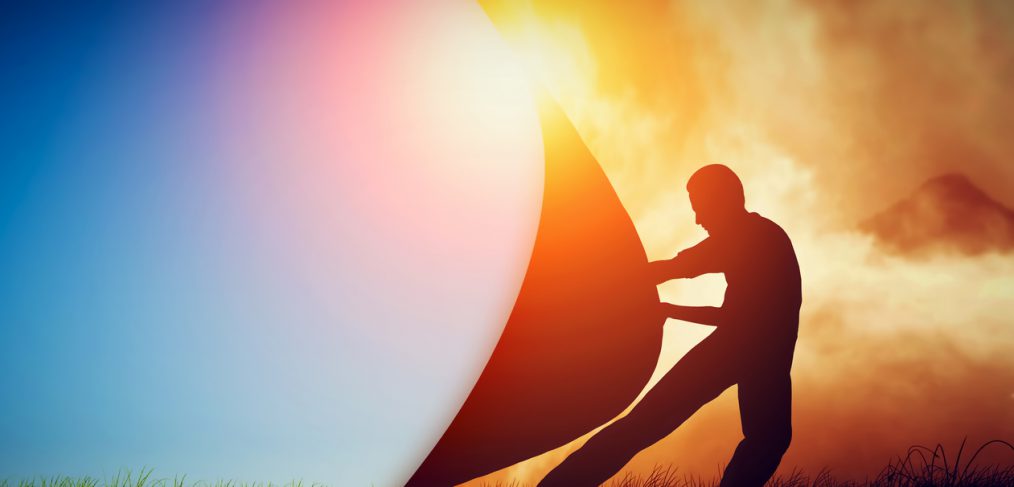
Extremes
Don’t avoid extremes, and don’t choose any one extreme. Remain available to both the polarities—that is the art, the secret of balancing.
~Rajneesh
Our world is made up of extremes.
Some extremes we experience may be very positive. Others may be the result of injustice or inequality. In the course of our lives, we have to navigate those extremes and understand their nature.
Personal Extremes
Some of our extremes are very pleasurable. For example, being out all day in the cold, and then sitting in front of a roaring fire pit. Feeling really hungry and eating a delicious meal. Exercising to complete physical exhaustion, followed by flopping onto a coach for a period of rest and stillness. Sleeping under a comforter in a pocket of warmth on a cold winter’s night. In college, my roommate and I would open our window in the wintertime to get our room freezing cold because we both loved that feeling of sleeping under a warm comforter in a cold room. It didn’t make getting up the next day very pleasant, but we were college kids, so we weren’t getting up that early anyway.
We can also find extremes in our emotions. On some days, we may have a very common set of emotions. We go to work, we spend some time with friends or doing hobbies—nothing happens that would elicit deep feelings. On other days, we might be faced with an almost unbearable happiness and love. Those days in which we find our soul mate and discover that he or she loves us too. Those days when we see our children achieve great things. We also have days when we feel our world has fallen apart. We all have to face tragedies and hardships—some more than others—and the emotions we feel during those times are extreme indeed.
Social Extremes
The world we live in is a picture of extremes. Climate extremes, cultural extremes, social extremes. One of the most striking examples of this is wealth inequality. It remains shocking to me that the wealthiest 1% of people in the world owns half of the world’s wealth (source: Credit Suisse). OK, maybe it’s not that shocking; a small group of rich people own half the world. It’s the other side of the coin that is disturbing. The world’s poorest people, defined as those with assets of less than ten thousand dollars (70% of the global population!), own less than 3% of global wealth. Put another way, those on one side of the wealth extreme are putting away vast amounts of wealth, which they couldn’t possibly spend, while most people in the world don’t have enough money to provide for basic life necessities.
The real tragedy about this is that wealth, in and of itself, does not translate to a fulfilling, happy, or meaningful life. If these were broadly treated as the valuable commodities that we treasure, there wouldn’t be mass poverty in the world, because people would not stockpile ridiculous amounts of money and possessions, and a desire for meaning would lead to conditions in which all people might have an opportunity to provide for their basic necessities.
Extremes of Opinion
Other extremes in our lives are related to our worldviews. We may consider certain viewpoints extreme, while others may feel that our viewpoints are extreme. Social and political discourse in this country has devolved to a point where it stays in the extremes. However, if we are talking to our neighbors and friends, we quickly find that we have much common ground. To translate this middle ground to the way we engage in debate as a society, we have to keep an open mind about what the other person is saying, even if it is offensive or unjust. To resolve conflict, there needs to be trust and compromise. This might not always be possible; we should never cast aside our values or principles, but an open mind and a spirit of compromise must be the starting point if there is any possibility of success (see Civility).
How do we handle the extremes in our lives? Do we understand them? Do we live in our extremes? We can identify and recognize the extremes in our lives and then either address them or embrace them, depending on their nature.
If we can better understand others’ extremes, we can help to make the world a better place and bring us closer to the people in our lives.



